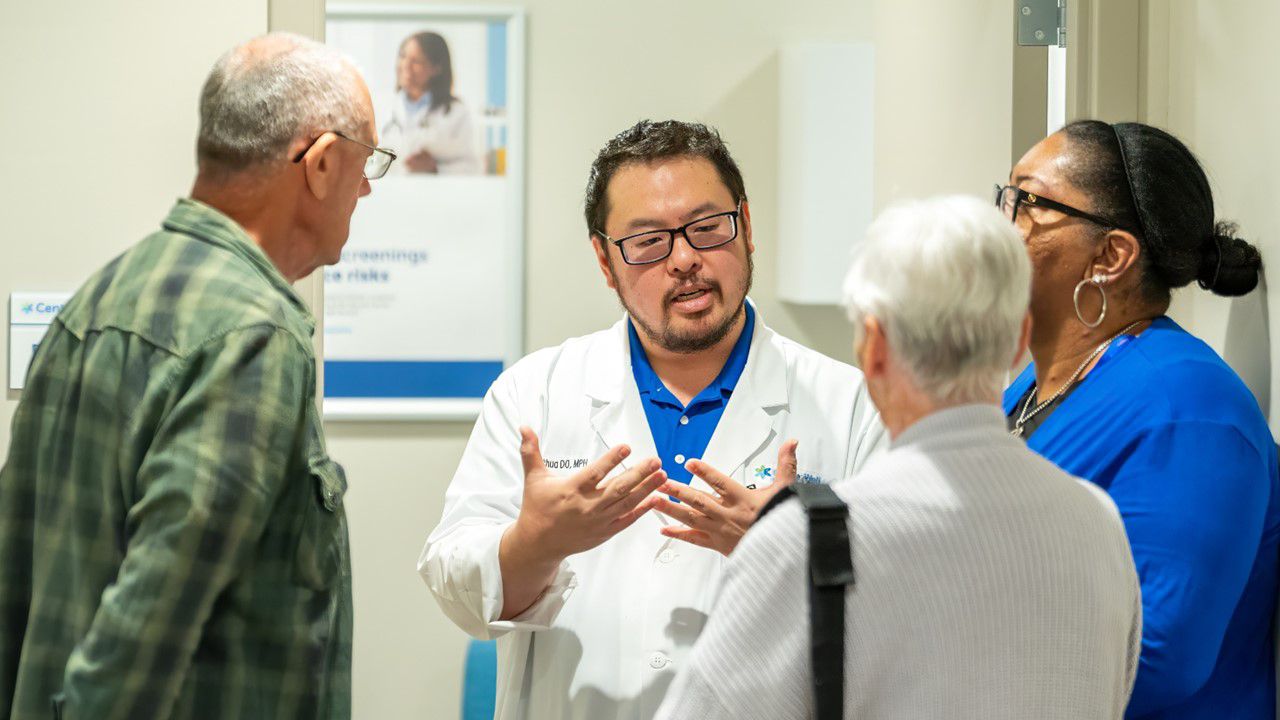America is aging – fast. According to the
So, people are living longer, and more independently too. But we’re a long way from where we need to be to support graceful aging in place. Nearly
The facts substantiate the need to treat seniors differently – as geriatricians say, we become more ourselves as we age, and our needs become more individualized. A tool we’ve long had in our toolbox – primary care – can play a major role in this new approach.
Primary care has always been the first line of defense in healthcare, but historically it’s been underutilized and underfunded.
To make this comprehensive approach possible, CenterWell moved away from a fee-for-service system, where payments depend on the quantity of services provided, toward a value-based payment system, which aligns payments with quality of care and better health outcomes.
Let me explain how this creates “whole-person care.”
Value-based care brings together the right team and care for better outcomes
Many people are surprised to learn that medical factors account for just 20% of health outcomes, while
In our value-based care model, doctors and other primary care clinicians with CenterWell and Conviva Care Center are specially trained and supported to treat seniors, delivering care that addresses the holistic and specific needs of each patient, caring for the “whole person.” Our doctors spend more time with their patients – around 50% longer than in a traditional practice (
Our primary care clinicians lead an interdisciplinary care team that includes nurses, pharmacists, social workers, and behavioral health clinicians, who together deliver preventive care, manage chronic conditions, and tackle social barriers to health. Our care team meets each morning to discuss the patients we’ll see that day, as well as patients in the hospital or ER, and identify ways we can work together to move their health goals forward. This may mean coordinating with family caregivers, aligning on care plans with specialists, or helping patients find resources for transportation, financial assistance, housing and nutrition needs.
We’ve seen encouraging results from our model – a
Let me give you an example of someone whose life has been helped by CenterWell. Fred Moore, of Las Vegas, suffers from complex medical conditions including an inguinal hernia, asthma and allergies, and his health is complicated by housing insecurity.
“I haven't had very many doctors in my lifetime that actually sat there and listened,” said Moore. “The reason I like CenterWell is that they take very good care of you. They listen. I feel like my doctor has gotten to know me.”
These are the moments we strive for – Moore’s personal story makes clear why comprehensive primary care for seniors, enabled by value-based payment, needs to be at the forefront of supporting our aging population.
Coordinating care across CenterWell
CenterWell Senior Primary Care is part of Humana’s larger CenterWell healthcare services organization, which focuses on three crucial services for seniors: primary care, home health and pharmacy. CenterWell Home Health provides home-based care from more than 350 locations across 38 states, and CenterWell Pharmacy and CenterWell Specialty Pharmacy serve customers with home delivery, specialty, hospice and retail pharmacy services.
Primary care, pharmacy, and home care represent significant points of influence for seniors in their healthcare journeys. Our goal across CenterWell is to deliver coordinated, personalized care for seniors, so that no matter where someone is on their health journey, CenterWell is with them. Already, a growing number of CenterWell Senior Primary Care patients have their medications and home health care coordinated with CenterWell Pharmacy and Home Health. The more we can bring the right services together for seniors, streamline communication and reduce fragmentation, the more transformative our seniors’ healthcare experience will be. And the more time our clinicians can spend working together to improve care.
Primary care is hardly new, but it has been overlooked for decades as healthcare has tipped towards specialty care and new innovations in treatments. CenterWell is re-establishing primary care as the starting point for wellness and improved health for older adults. By truly delivering whole-person care and coordinating across the senior care ecosystem, we can change the health of senior communities nationally.


